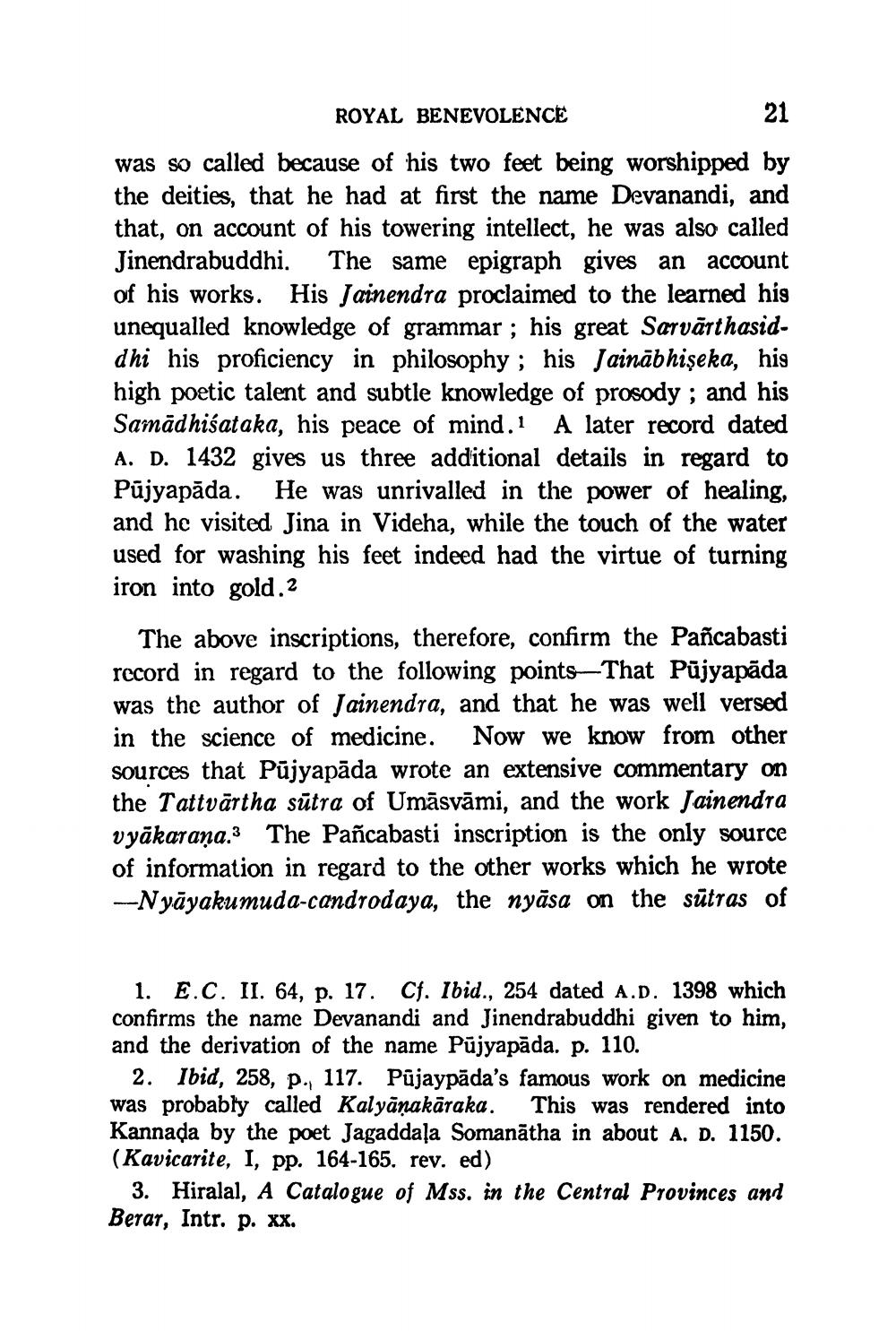________________
ROYAL BENEVOLENCE
was so called because of his two feet being worshipped by the deities, that he had at first the name Devanandi, and that, on account of his towering intellect, he was also called Jinendrabuddhi. The same epigraph gives an account of his works. His Jainendra proclaimed to the learned his unequalled knowledge of grammar ; his great Sarvārthasiddhi his proficiency in philosophy ; his Jainābhişeka, his high poetic talent and subtle knowledge of prosody; and his Samādhisataka, his peace of mind.1 A later record dated A. D. 1432 gives us three additional details in regard to Pūjyapāda. He was unrivalled in the power of healing, and he visited Jina in Videha, while the touch of the water used for washing his feet indeed had the virtue of turning iron into gold.2
The above inscriptions, therefore, confirm the Pañcabasti record in regard to the following points—That Pūjyapāda was the author of Jainendra, and that he was well versed in the science of medicine. Now we know from other sources that Pūjyapāda wrote an extensive commentary on the Tattvārtha sūtra of Umāsvāmi, and the work Jainendra vyäkaraṇa.3 The Pañcabasti inscription is the only source of information in regard to the other works which he wrote ---Nyāyakumuda-candrodaya, the nyāsa on the sütras of
1. E.C. II. 64, p. 17. Cf. Ibid., 254 dated A.D. 1398 which confirms the name Devanandi and Jinendrabuddhi given to him, and the derivation of the name Pūjyapāda. p. 110.
2. Ibid, 258, p., 117. Pūjaypāda's famous work on medicine was probably called Kalyānakāraka. This was rendered into Kannada by the poet Jagaddaļa Somanātha in about A. D. 1150. (Kavicarite, I, pp. 164-165. rev. ed)
3. Hiralal, A Catalogue of Mss. in the Central Provinces and Berat, Intr. p. XX.




